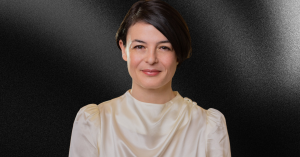As high-net-worth individuals (HNWIs) in Central and Eastern Europe seek more structured and sophisticated ways to manage their capital—yet often stop short of establishing their own dedicated family office—multi-family offices (MFOs) are one relevant option when it comes to preserving and growing intergenerational wealth.
A multi-family office is an independent organization that supports multiple families in managing their entire wealth. MFOs typically offer a wide range of services, including tax and estate planning, risk management, objective financial counsel, trusteeship, lifestyle management, coordination of external professionals, investment advice, and philanthropic foundation management.
The concept is gradually expanding in CEE, with a growing number of such entities emerging in markets like Poland and the Czech Republic. Examples include ZPI Family Office in Poland, and Consillium Family Office and Family Office Partners in the Czech Republic. Among them is also Romania-based OPES Family Office, which illustrates how traditional wealth advisory is evolving to meet modern expectations in the region.
We talked to Calin Nechifor, the founder and managing partner of the office, to understand how his multi-family office is advising HNWIs. His insights also appear in Money in Motion, our latest report on High-Net-Worth Individuals in CEE.
👉 Download the report: Money in Motion: Understanding High-Net-Worth Investing in Central and Eastern Europe
The role of a multi-family office
OPES provides investment advisory services to HNWIs and financial institutions, with a focus on tailoring strategies to each client’s specific needs.
“Our mission is to protect and enhance family wealth by combining regular old-fashioned wealth management services with more complex, sophisticated products and strategies historically available only to institutions,” explains Nechifor.
The firm partners with major banks around the globe, providing access to a wide range of financial instruments. At the core of its offering is personalized financial advice that begins with understanding the client’s individual goals and risk appetite.
“When starting the asset allocation process, we always keep in mind the client’s goals, wishes, and needs, as well as its appetite for risk.”
Recommended portfolio strategies
OPES structures portfolios around traditional asset classes—fixed income instruments such as government and corporate bonds, money market funds, and cash equivalents, as well as equities across different sectors and geographies.
“We recommend traditional asset classes such as fixed income and equities, including large-cap, mid-cap, and small-cap equities.”
To build diversification and help clients achieve their objectives, mutual funds and ETFs are also included in the mix. For clients open to taking on more risk, the firm allocates a smaller part of the portfolio to a speculative strategy, introducing alternative assets. These may include private equity, early startups, venture capital, real estate, digital assets, commodities, art and luxury, as well as impact and ESG-oriented investments.
“We provide a personalized approach to each client to meet his or her objectives. Using alternative assets helps us diversify our clients’ portfolios, hedge inflation, provide a higher risk-adjusted return potential, access unique investment opportunities, and protect and preserve clients’ wealth.”
In a region where many HNW families are first-generation wealth creators, multi-family offices are bridging the gap between traditional portfolio management and broader, global investment opportunities—while also guiding families through succession planning and wealth transfer in a tax-efficient manner.









